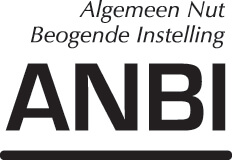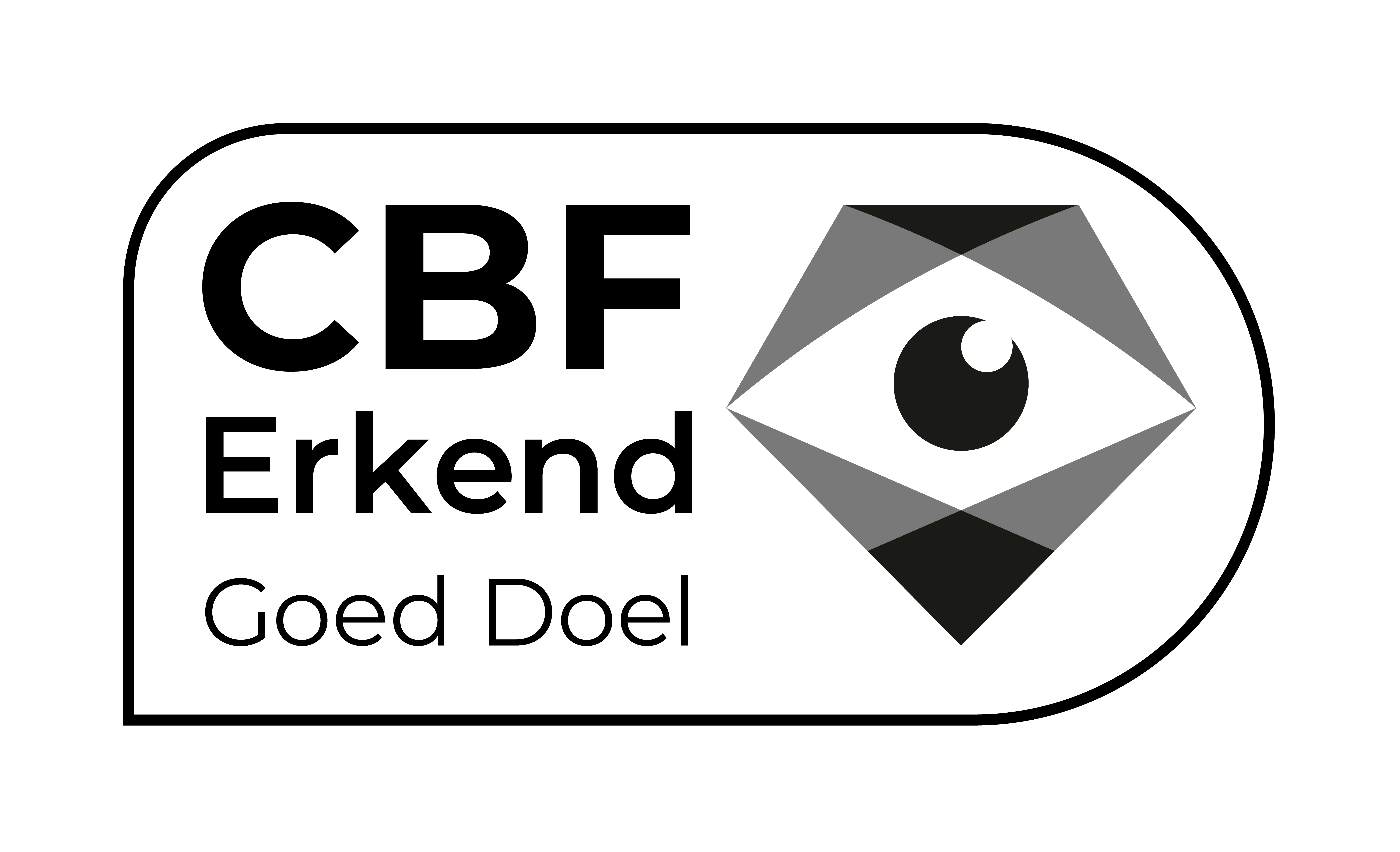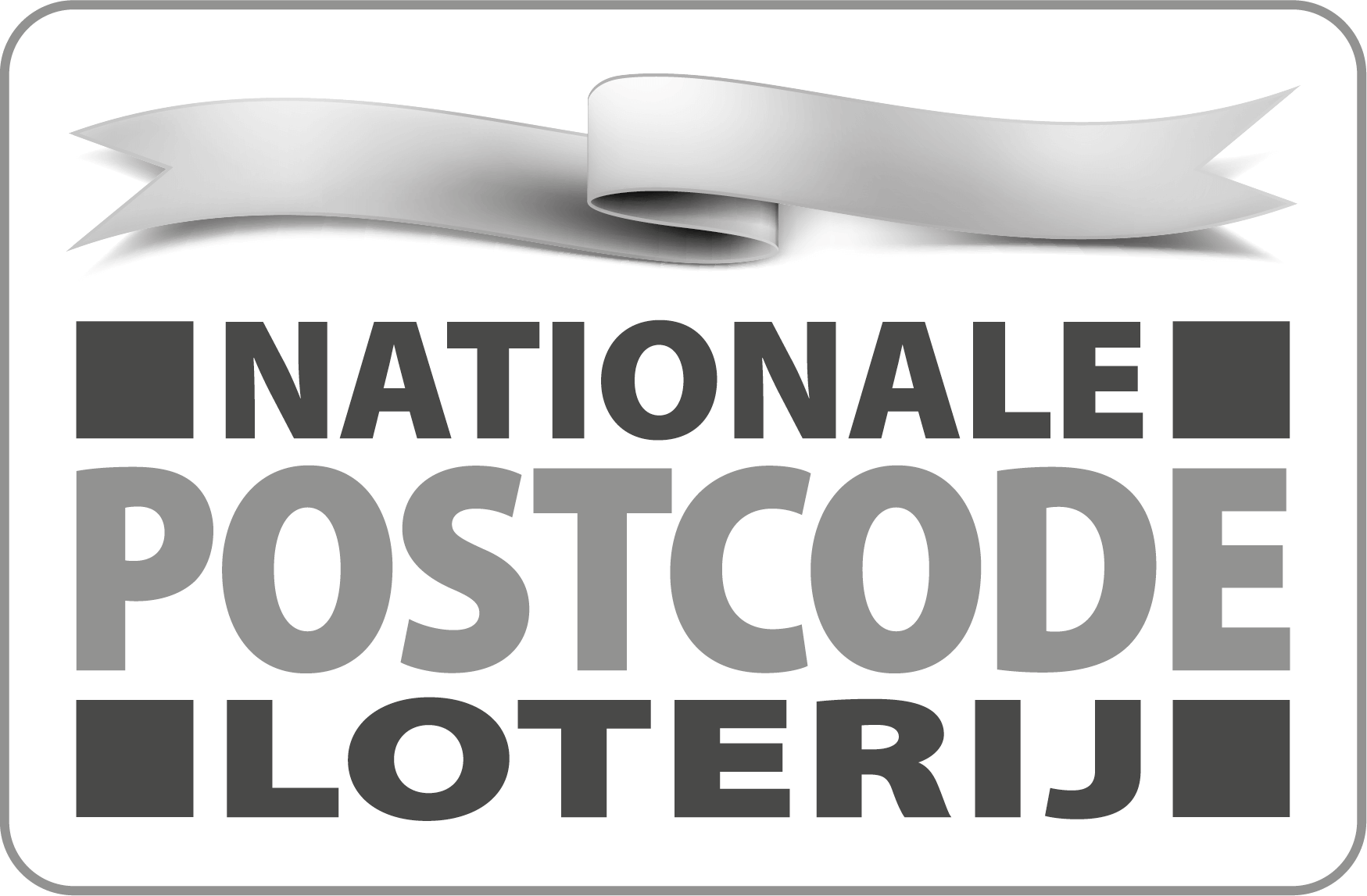News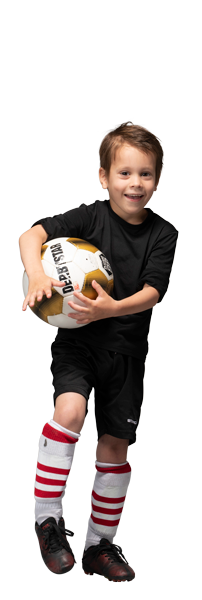
"Every child should have the opportunity to experience culture in their lifetime. Culture enriches your life, and I want everyone to experience that!" Carla van der Veen, along with her partner Jan Klijn and their team, is responsible for Theaters in the Netherlands, a platform that spotlights local theater productions in the Netherlands. "A website, a theater newspaper, a mobile promotional tour, social media attention. We do everything we can to fill the theaters! And with that, we sponsor the Youth Fund for Sports and Culture. A win-win situation, if you ask me."
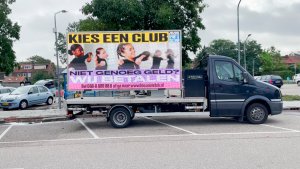 Fifteen years ago, the website Theaters in the Netherlands was launched. "We felt there was a need for a site where you could view local theaters' offerings by city or province. Visitors can search for a great show by city. No more surfing through different theater websites, but all the information in one place. The goal is full houses, a thriving and vibrant theater scene, and an easy way for visitors to find information," says Carla. All Dutch theaters now share their programs, and the site has been supplemented with reviews, information from producers, and industry news. "We also regularly distribute a newsletter to 15,000 subscribers. We're now also producing a local theater newspaper filled with relevant information for each city. And every Saturday, we have a large LED trailer driving around various cities to promote the theaters. They post content on it to promote full houses, and we simultaneously promote the Jeugdfonds Sport & Cultuur (Youth Fund for Sports & Culture)."
Fifteen years ago, the website Theaters in the Netherlands was launched. "We felt there was a need for a site where you could view local theaters' offerings by city or province. Visitors can search for a great show by city. No more surfing through different theater websites, but all the information in one place. The goal is full houses, a thriving and vibrant theater scene, and an easy way for visitors to find information," says Carla. All Dutch theaters now share their programs, and the site has been supplemented with reviews, information from producers, and industry news. "We also regularly distribute a newsletter to 15,000 subscribers. We're now also producing a local theater newspaper filled with relevant information for each city. And every Saturday, we have a large LED trailer driving around various cities to promote the theaters. They post content on it to promote full houses, and we simultaneously promote the Jeugdfonds Sport & Cultuur (Youth Fund for Sports & Culture)."
It does something to you
Carla loves theater. "Yes, of course! Culture in the Netherlands is close to my heart. There's so much to see, do, and experience in the theater. There are inspiring performances, moving, relaxing, and funny moments in the theater. You're transported to another world for a moment. And that's beautiful. As far as I'm concerned, culture sparks your creative juices. It does something to you. That could be music, dance, theater, or some other form of expression, but it resonates. And for children, that's essential for their development. That's why we want all children in the Netherlands to have access to culture. Playing an instrument is an expensive hobby. Even a drama club or a dance studio can't exist without membership fees. So we want money not to be a barrier for children to join and experience the benefits. Clearing your head, relaxing, making friends, having an outlet, interacting with children with similar interests, playing together—all aspects that play a role. It truly enriches your life when you can experience cultural expressions." And we want that for all children.'
Positive inspiration
That's why the Theaters in the Netherlands platform is also making a conscious decision to donate to the Youth Fund for Sport & Culture. "We were looking for a charity that aligned with our mission: positive inspiration, putting culture on the map, and selling out theaters. The Youth Fund makes it possible for every child to experience this. And that, in our view, is incredibly valuable. And especially in this post-corona era, reopening the world is so crucial. We'd love to shout it from the rooftops: culture is absolutely essential!"
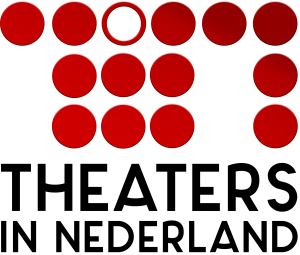
More about Theaters in the Netherlands
The Leerorkest is an innovative form of music education that gives all children the opportunity to learn to play a musical instrument and make music together during school hours. Marco de Souza founded the Leerorkest in 2005 in Amsterdam's Bijlmer district.. "Far too few children from the neighborhood were attending music lessons. I wanted to change that."
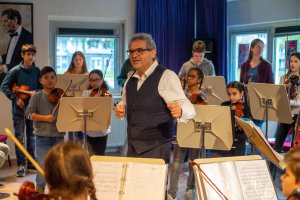
Marco de Sousa started the Leerorkest when he was director of the music school in the Bijlmer. "I saw all those children walking around the neighborhood. There are about 130 nationalities living in the Bijlmer. Many children from the high-rise buildings around us would look in and then walk past. I thought that was strange and wanted to change it. At that time, there was also a prevailing view that there was no point in teaching a child from the Bijlmer to play the violin. I was angry about that; I can't think of a single reason why children from our neighborhood shouldn't be able to play a classical instrument."
Children from affluent Amsterdam South came to us to play djembe because we had a good teacher. They could choose which instrument they wanted to play. Children from the Bijlmer didn't have that choice. I wanted to give them that opportunity. We started organizing concerts at schools. The children loved it, a bassoon with all those shiny buttons: it's magical. We went into the schools with a collection of instruments and the idea that we wanted to teach all children.
Everyone can learn to read and write, and that also applies to music. Remember, every child growing up in the Netherlands encounters classical musical instruments. Every Harry Potter or Disney film is filled with symphonic music. So it's a misconception that children from other cultures don't learn this at home.
Music as an oasis
Marco himself was born and raised in Brazil. “We started out poor, but my parents had business acumen and worked their way up to the middle class. They loved us, but there wasn't much emotional support, and I felt quite unhappy. When I was about six, my oldest brother came home with a record player and a classical album. That music became an oasis for me; it transported me to another world. Thanks to music, I felt protected and safe. I decided to become a musician, something my parents were against and didn't support. At a very young age, I started working to be able to take music lessons; I had to do everything myself. So I know what it's like to go against the grain. And I also know that it can make you happy.”
The Leerorkest is a household name in the Netherlands and has now expanded to Curaçao, Aruba, and Bonaire. Thanks to the Leerorkest, thousands of children from diverse cultural backgrounds discover the liberating power of listening to music and, more importantly, making music together. No money for lessons at home? We pay for the lessons, and the children receive a free loan of an instrument from the Leerorkest Instrument Depot Foundation.
Corona lessons
During the coronavirus pandemic, the children received online music lessons. This had an unexpected and educational side effect. Through the camera, the music teachers literally got a glimpse into their home life. "The goal of the Learning Orchestra is to make children happier, not just by teaching them to play an instrument but also by building a relationship with them," says Marco. "Through the online lessons, we came into the living room. Because you see more of the child, the relationship deepens. And parents saw how their children were being taught. Many families don't have a computer, and children would follow lessons, for example, via their mother's phone. And then the mother would vacuum or something while the child was having lessons. The lesson was part of the family's daily routine. We learned that we can reach the children in any situation; they are used to studying in a less-than-ideal environment."
Read more
- Via Take That! Parents can borrow an instrument free of charge from the Instrument Depot Leerorkest;
- More about music lessons with the help of the Youth Fund;
- View the website of the Learning orchestra.
Photo: Greta Muis. Marco de Souza among students.
Judith Hermelink has been coordinator at Sam&, the partnership between the Youth Fund for Sport & Culture, the Leergeld Foundation, the Jarige Job Foundation, and the National Fund for Children's Aid, since September 2019. Sam& provides parents and intermediaries with easy access to a wide range of services for children growing up in low-income families.
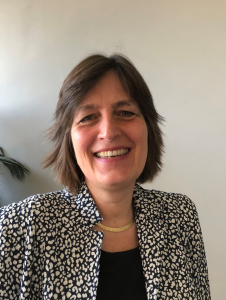 Judith and her three colleagues are working hard to create a single, transparent platform where applications can be submitted for a wide range of services. "Since March 2019, Sam& has been a foundation, and a lot is happening," says Judith. "Building a portal, making the world aware of our existence, but also legal affairs and HR, for example. I also have discussions with all kinds of parties. So many organizations are involved in the issue of child poverty: municipalities, national politics, foundations, volunteer organizations. And everyone wants to make a difference. We have to be a sound organization in that arena—not large, but mature. It's a bit of a pioneering effort, which makes it really enjoyable."
Judith and her three colleagues are working hard to create a single, transparent platform where applications can be submitted for a wide range of services. "Since March 2019, Sam& has been a foundation, and a lot is happening," says Judith. "Building a portal, making the world aware of our existence, but also legal affairs and HR, for example. I also have discussions with all kinds of parties. So many organizations are involved in the issue of child poverty: municipalities, national politics, foundations, volunteer organizations. And everyone wants to make a difference. We have to be a sound organization in that arena—not large, but mature. It's a bit of a pioneering effort, which makes it really enjoyable."
Concrete and clear
Child poverty has been receiving a lot of attention in the press lately. It's clearly a hot topic. Judith: “The tone of the articles is often, 'How is it possible that child poverty exists in a wealthy country like the Netherlands?' That's what I like about the four organizations affiliated with Sam&: they offer something concrete. It's clear, defined in-kind assistance. And no, we're not solving child poverty. We're trying to do something for children, to make a difference in a difficult situation, and hopefully, that will have a long-term impact. Let's keep it simple. Growth isn't a goal, but if you want to join forces, I think you should include organizations that work in the same way.”
We're not solving child poverty. We're trying to do something for children, to break through in a difficult situation.
Different perspective
Before Judith started working at Sam&, she managed the Ronald McDonald House Utrecht at the Wilhelmina Children's Hospital and worked for the overarching Ronald McDonald Children's Fund. “It's an organization everyone supports. Parents of seriously ill children need to be able to be close to their child; everyone agrees on that. There were never any negative reactions. That can be difficult at Sam&. On social media, there are sometimes comments along the lines of 'just let those people go to work.' Poverty is a complex issue. It's a series of problems people face, and sometimes you have to be able to see things from someone else's perspective. I consider it normal that my children play sports, go on school trips, and have a good bike. But what's normal for me isn't necessarily normal for someone else. Especially not for someone who is in a difficult situation and has lost perspective. I'd learned that before. I worked in addiction treatment, where it was also very clear that you have to be careful about judging something you know little about.”
Sam& campaign launched
On January 16, 2020, the public campaign Sam& has launched. A significant moment. "It's exciting," says Judith. "Parents and intermediaries can submit requests through the portal, which we then forward to the organizations. Naturally, we want these requests to be processed quickly and efficiently. Together, we're ready to give as many children and young people as possible the opportunity to participate."
In 5 years
Where do I want to be in five years? Probably a utopia, but it would be wonderful if families felt comfortable applying and the application process went smoothly. And of course, that many more organizations were affiliated with Sam&, and that all children in the Netherlands had the opportunity to participate.
Facts & numbers
children and young people became members of a club through us in 2024.
in 2024, children and young people became members of a sports club through us.
in 2024, children and young people became members of a cultural club through us.
issued sports and cultural equipment in 2024.
